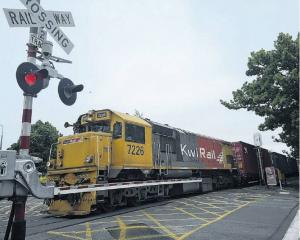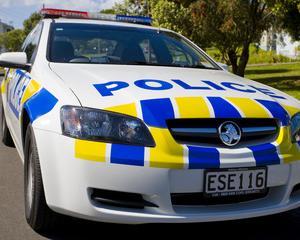
Otago Business School senior lecturer Dr Duncan Connors, along with the University of Otago’s Dr Sarah Carr and Prof Andrew Perchard, presented a proposal dubbed "A New Silver Fern Railcar" to the transport and infrastructure select committee at Parliament yesterday.
The group’s research focused on the rail corridor between Christchurch, Dunedin and Invercargill where 57% of the South Island population live.
They envisaged a three-hour trip from Christchurch to Dunedin and a two-hour trip connecting Dunedin to Invercargill.
By combining the needs of Auckland, Wellington and the southern rail network into a single procurement of modern railcars — along with significant development of existing infrastructure — regular passenger rail could be returned to all of New Zealand within five years, they said.
Dr Connors said places such as Western Australia, Queensland, Japan, Taiwan and South Africa offered answers to the questions sceptics of passenger rail were asking.
"There is no technical, or socio-economic, or political reason why we do not have passenger rail in New Zealand .
"We can do this solely based on the argument that they do it elsewhere.
"People say ‘Well the population’s too sparse’.
"You still have five services to northern Finland a day from Helsinki."
There were also regular services north from Oslo.
Hokkaido, in northern Japan, supported a rail service over mountainous terrain with a population of about five million, Dr Connors said.
Other rail naysayers argued the gauge of the railway track was too narrow.
Yet, New Zealand’s relatively narrow distance between the two rails of a railway track was not an impediment elsewhere, he said.
"Effectively, the technology is there and other people do it.
"It makes you wonder, as an aside, did passenger rail die in New Zealand because there wasn’t the demand?
"Or did we as a nation say: ‘Well, we’re not going to invest in new trains; we’re not going to invest in new infrastructure’?"
Dr Connors said he and his colleagues "strongly believe" in the opportunity for New Zealand. However, he did not believe KiwiRail would be the organisation to deliver it.
Rather, new, publicly owned companies would need to be established and the programme would need to be subsidised by the government.
"If you were a classical liberal, classical free marketeer, you would definitely have a heart attack at this point," he said.
"However, countries like Sweden, or the Netherlands, or Germany, or France, or Italy, they look at the balance sheets ... They create economic activity. If the rise in taxation is higher than the subsidy, it’s business."
Dunedin city councillor Jim O’Malley also appeared yesterday to speak to the Dunedin City Council’s support of inter-city rail.
He said there was a "massive amount of investment needed" on the lines in the South, especially between Dunedin and Oamaru, but he wanted to raise the benefit of commuter rail in Dunedin.
There were 20,000 cars on the Southern Motorway every day now, but the council believed it could get 4000 of those commuters on to rail if commuter rail from Mosgiel was established.
"People go, ‘Oh you’re such a small city and we can’t get this to operate in Christchurch’.
"You have to remember that Dunedin once was a big industrial city and it put a railway line right through the centre of it.
"Our Britomart is already built: it’s already at the bottom of Stuart St. You get into the central railway station of Dunedin and you’re less than 1km from most of the office blocks in the city."
Advertisement













